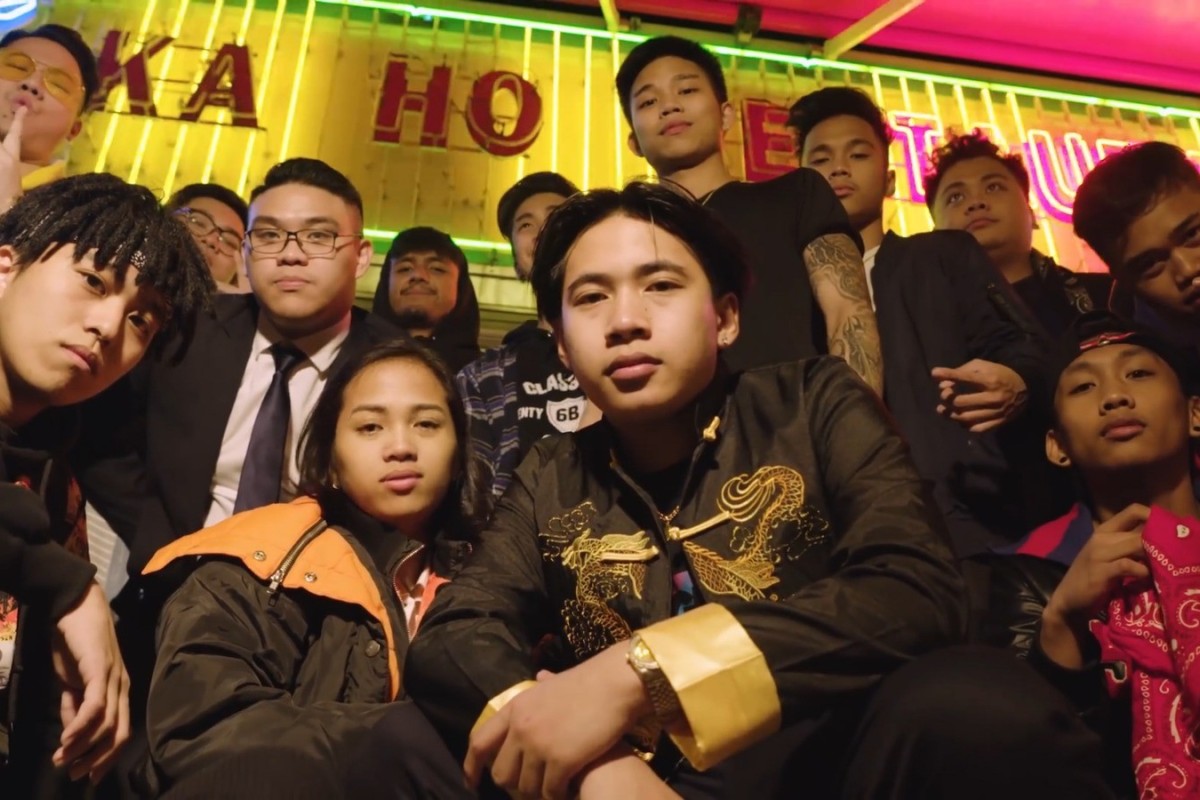
Hong Kong-raised Filipino rapper Lazyboi Dri on music, speaking Cantonese, Chinese culture and where it all mixes together
Embracing the local culture has certainly helped this local musician kick off his rap career, but he will never forget his Filipino roots

 Lazyboi Dri's dream is to his perform at the Hong Kong Coliseum.
Lazyboi Dri's dream is to his perform at the Hong Kong Coliseum.Hong Kong-raised Filipino rapper Lazyboi Dri, born Edrian De Leon, has turned heads with his bold entrance into the city’s rap scene. Last week, we sat down with the 21-year-old to discuss his latest release Hand Dri Was Dealt and his experiences as a Filipino artist trying to make it in the Hong Kong music industry.
Lazyboi Dri faced struggles growing up, with his mother working as a domestic worker and his father as a private driver, but was thankful for his parents’ employers, who allowed him to stay with them. Despite being an ethnic minority, he said he experienced minimal discrimination growing up, and explained how being able to speak Cantonese helped him get along with the locals.
He said that knowing Chinese helped him understand the local culture more and reduce misinterpretation.
“Some Chinese people can come off harsh when they talk, but if you just take [what they say] as a joke ... then I don’t think there will be many problems,” he explains.
His interactions with the Hong Kong community began at a young age. “I’ve been studying at a local school ever since I was in primary school. Most of my classmates were Chinese except for two or three of us that were Filipino.”.
The artist’s passion for rap was ignited by fellow rapper J. Cole’s album Forest Hills Drive. During the interview, Lazyboi Dri was not shy in expressing his appreciation for the rapper’s work: “I’m just in love with his music.” Lazyboi Dri resonates with J. Cole’s ability to speak truths through his music.
Jason Mraz's songwriting tips and guide to living your best life
“Like me, he tells a lot of stories, it’s not so much turn-up music,” he says. “If you listen to it you get the feeling of the song and you understand the message behind the track.”
Like many of his rapper idols, Lazyboi Dri’s music communicates his story – a Filipino kid living in Hong Kong. He explains how many of his lyrics reveal “what people don’t see”. The rapper often draws on his diverse cultural upbringing for lyrical influence. He often raps in the three languages he can speak – Cantonese, English and Tagalog. In one of his tracks, Lazyboi Dri even compares his cultural persona to Nescafé’s 3-in-1 coffee.
Why HK pop singer Yuki Lovey left a promising career at a mainstream record label to go indie
“I’m just trying to do something different,” he says. “In order to be successful, I believe you have to be different from others,” he said.
Lazyboi Dri said he didn’t have many connections in the industry, which made it difficult to put out an album in Hong Kong. But, thankfully, he met local hip hop group 7on7 whose members gave him useful tips and showed him the ropes of the music industry.
He talks of his frequent visits to Central on Sundays, which is home to many of Hong Kong’s Filipino domestic workers on their day off. The streets ooze with cultural spirit as people dance and sing hand-in-hand, which he says strongly reminds him of home.
HK teens from a mix of cultures find common ground
Beyond his music, there is one thing the Filipino does not want people to forget: where he came from. “I want people to be like ‘Wow, you’re not ashamed of where you came from’. I think people should always remember and never forget their roots.”
When asked what the future holds for the up-and-coming rapper, he said, “I just want to be happy and do what I love to do, which is rap.”
Although now he is focusing more on making a living, he tells us rapping on the side, while it doesn’t pay very well, is what keeps his creativity alive. His hopes are to collaborate with other rising rappers in the city, and he aspires to one day perform at the Hong Kong Coliseum.
“I’ve dreamed about it for a while,” he says with a laugh, “but I don’t think it’s going to happen.”
Edited by Nicole Moraleda
